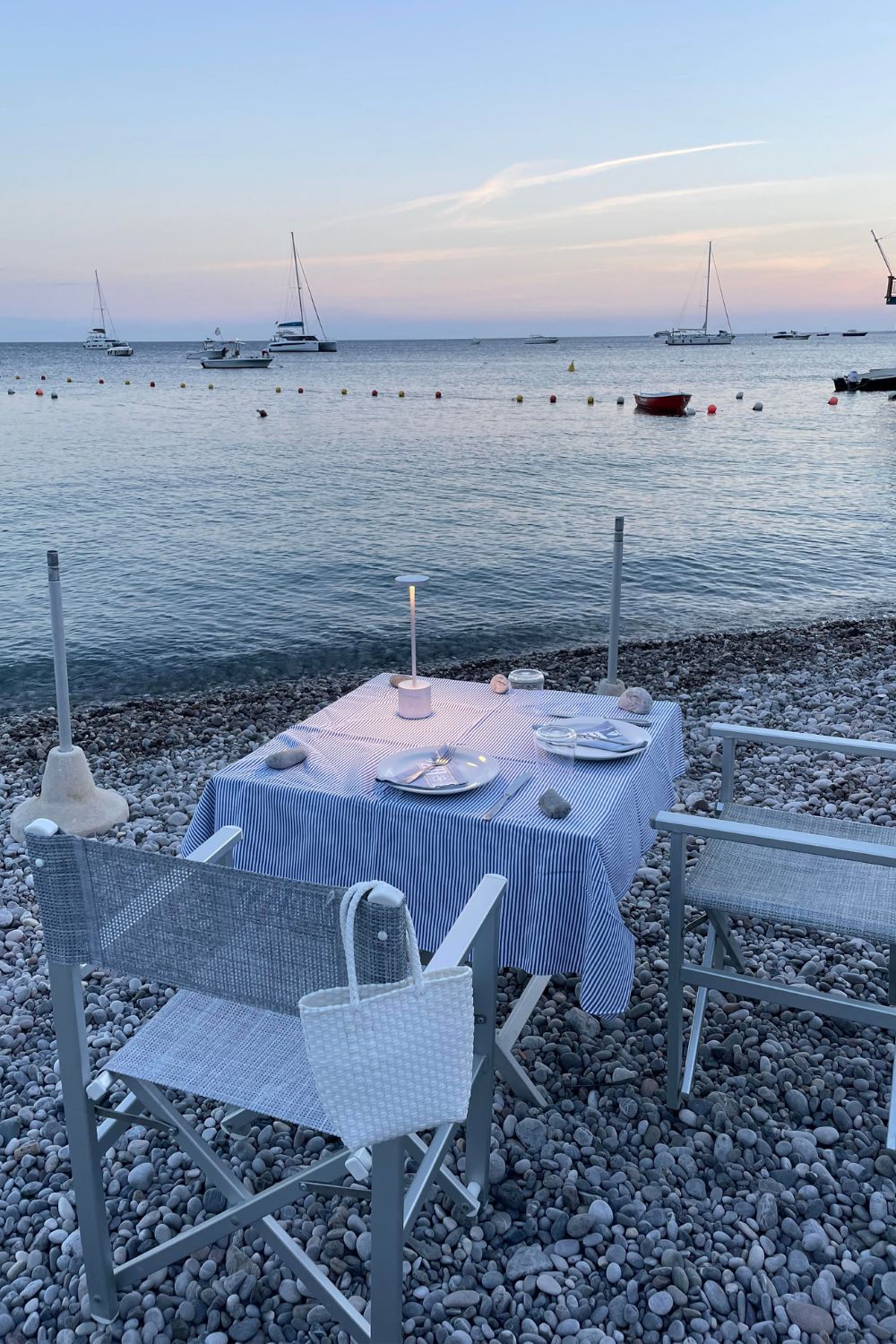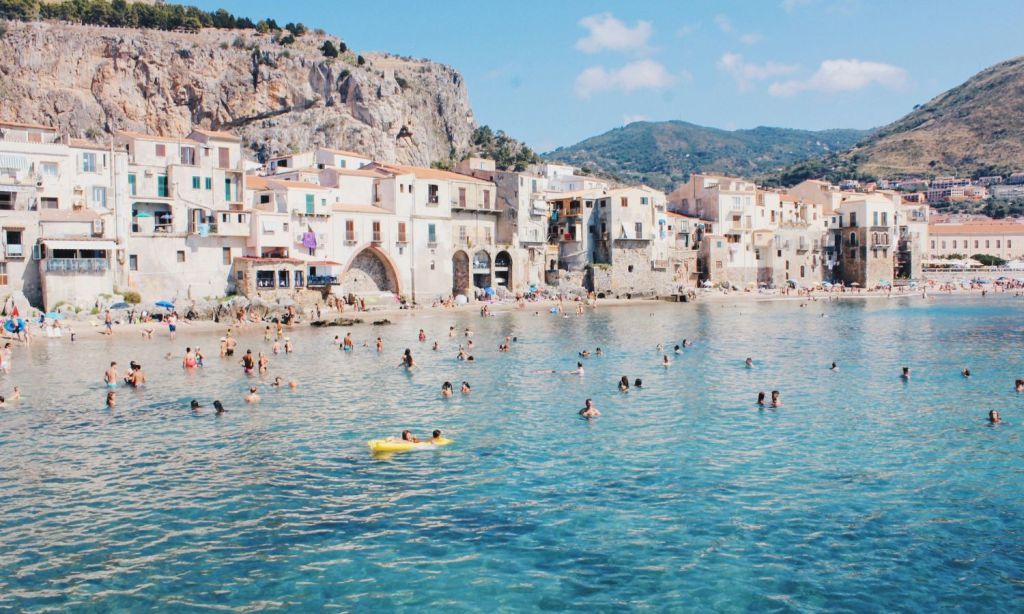Every year, thousands of Australians escape winter, heading for European summer. One of them is Emilia Sutton, creative director and founder of a handbag line, inspired by European summers, Mimmi Terra. An Italian-Australian, Sutton has experienced 10 European summers to date with both family and friends.
Ahead, Sutton shares her advice for doing a trip to the continent in the warmer months well. From the best time to start booking accommodation, to how to find the most beautiful secret beaches, here are Sutton’s best tips for Europe travel.

Book in Advance — But Look For Last-Minute Cancellations
Sutton says that while she’s booked as early as six months in advance, she’s also booked only two weeks ahead of time. That said, she’s found that there tends to be more availability when booking further in advance, especially if you are headed for popular towns or cities. She’s also found that prices tend to increase the closer you book to the travel date.
“However, I managed to book stunning and affordable accommodation at the last minute, which have become available due to last-minute cancellations and a need to fill the booking,” she says. “So, this is definitely something to keep an eye out for.”
Talk to the Locals
“My favourite way to explore is to let the town, people, and weather guide you for daily activities,” says Sutton. “For example, when chatting to the owner of a beach club in the Amalfi Coast, he later recommended a restaurant he had also owned. It was filled with locals and is still one of my favourites to frequent when I am in the area.”
Sutton says she’s also had amazing experiences in Europe recommended to her by Airbnb hosts. They’re often eager to share the names of restaurants they like or info on how they enjoy their weekends.

“I try to ask anyone I can strike a chat with — those working in bakeries, the local grocer, or market stalls,” she says. “Locals always know best, after all. I would much rather experience the town as a local rather than a tourist.”
Don’t Stick to Travel Blogs
Before you head to your destination, do your research. Sutton uses Conde Nast Traveller, Vogue Living and Pinterest for inspiration on where to go.
“I have also had some amazing recommendations from our Instagram community who are peppered throughout Europe,” she says.
Jog or Walk Off Your Jetlag
To best fight off jet lag, Sutton books a night flight from Australia and sleeps as much as possible on the first leg. Then, once she’s reached her stopover, which is usually Dubai, she tries to stay awake the whole day. Her flight usually touches down in Europe at sundown.
“Staying awake once I’ve landed in the EU is a breeze as I am usually bursting to try out the local cuisine and explore the town by foot,” she says. “After a quick freshen up, sneakers are on and I’m out for a light jog or walk around the area to get acquainted with the new time zone and sun and surroundings.”
Carry Cash
When travelling Europe, don’t make the mistake of assuming all places accept credit cards. Sutton says she’s been in places in Europe many times when there’s been no ATMs within walking distance or hefty credit card minimums.
“Especially when purchasing smaller items like a croissant from a local baker, ferry tickets, or a spritz from a park vendor – most will only accept cash,” she says. “I recommend always carrying some smaller notes and coins for these impromptu delights.”
Always Buy a SIM Card
One of the first things Sutton does when she lands in Europe is to buy a SIM card. She recommends you do so too, as the card will lead you to help you find hidden beaches, spots for a late lunch, or the closet grocer.
“I have been stuck many times relying solely on WIFi, which isn’t always available, especially if you like to venture off the beaten track,” she says.
Learn Some Common Phrases
Whenever Sutton has learned the basics of the native language of the country she’s travelling to, she’s found that a little goes a long way. It’s allowed her to converse with the locals and learn more about their culture.
“Even if it is only the basics you know, the locals will be flattered you have taken the time to do so and will be more inclined to help and chat with you,” she says. “The basics can also help you get from A to B while moving around. Most importantly, I feel it also shows respect and appreciation for the people of the country you’re visiting,”
Related: Do Aussies Need Those New Visas For Europe Too?
Related: This European Tourist Island Has Banned Phones, So Now You Have to Connect With Nature
Read more stories from The Latch and subscribe to our email newsletter.







